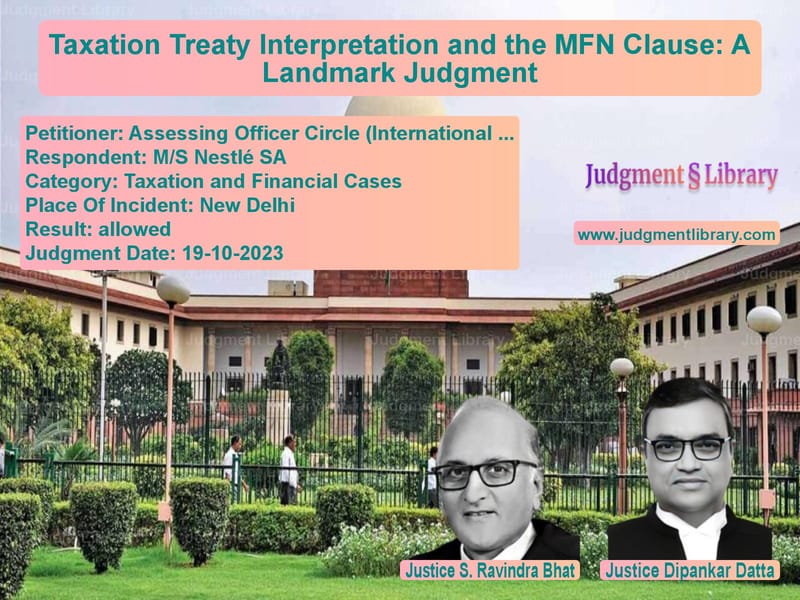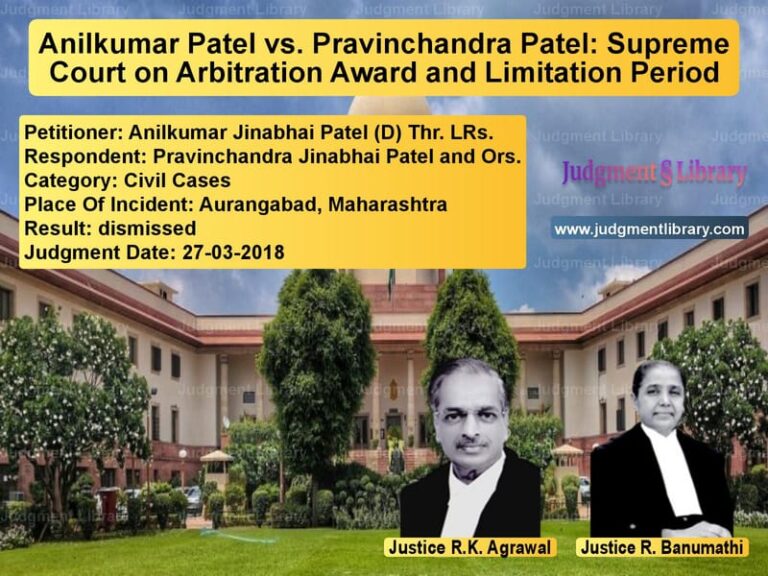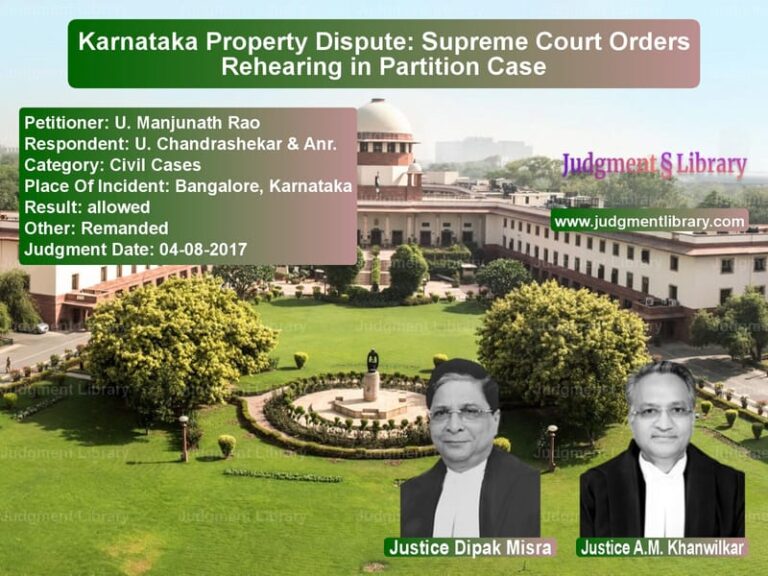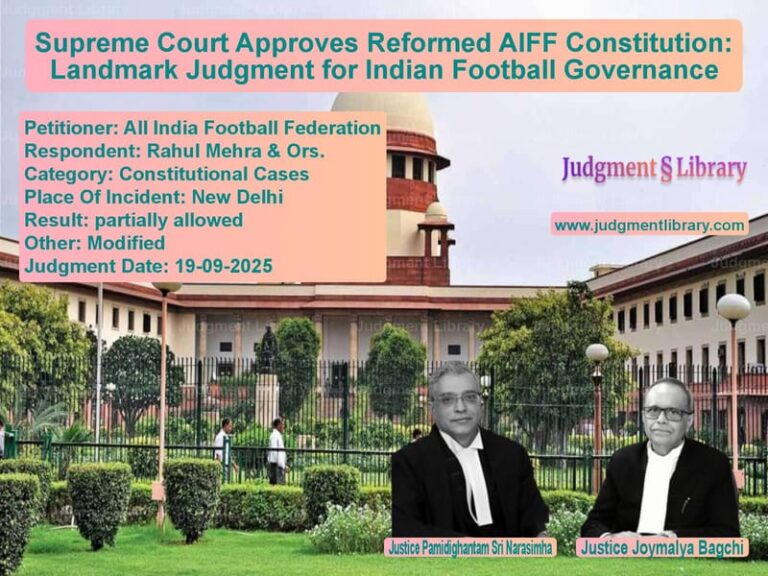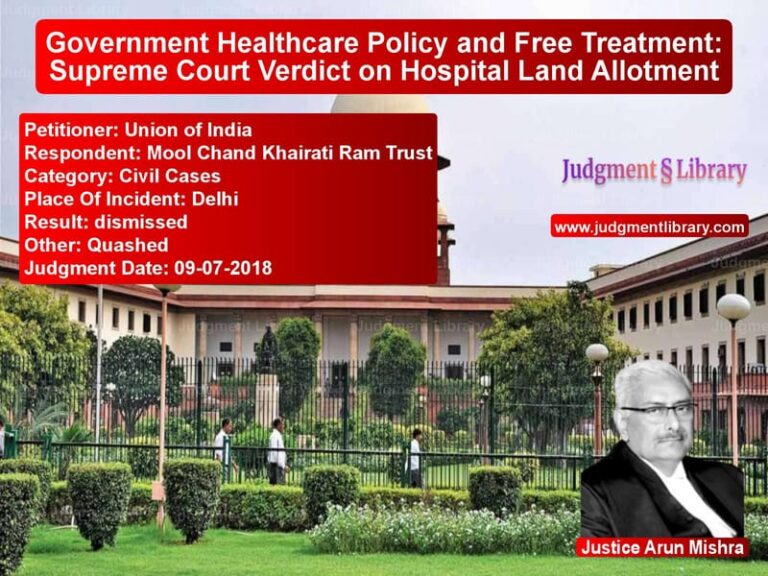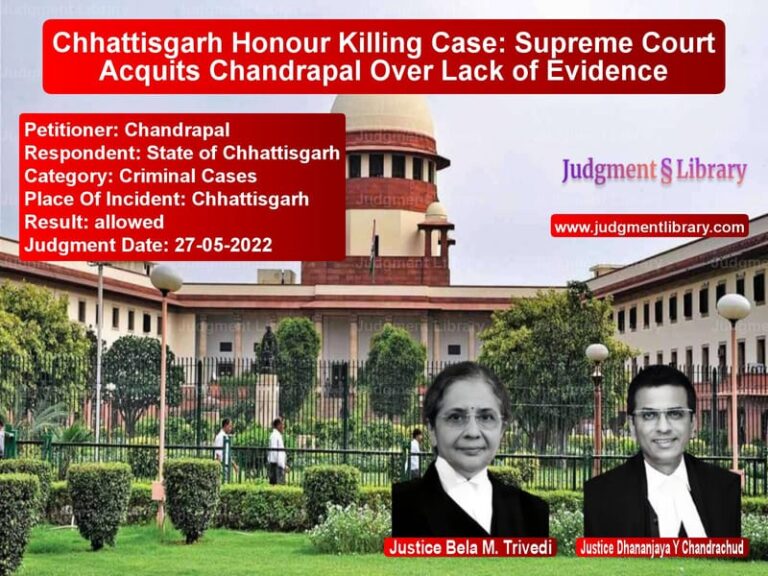Taxation Treaty Interpretation and the MFN Clause: A Landmark Judgment
The case revolves around the interpretation of the Most Favoured Nation (MFN) clause in India’s double taxation avoidance agreements (DTAAs) with the Netherlands, France, and Switzerland. The dispute pertains to whether a lower rate of taxation on dividends, interest, royalties, and fees for technical services granted to another country that later became a member of the Organisation for Economic Cooperation and Development (OECD) should automatically apply to existing treaties without a formal notification by the Government of India under Section 90 of the Income Tax Act.
Facts of the Case
The case stems from a batch of appeals filed by the Revenue Department challenging decisions of the Delhi High Court that had ruled in favor of the assessees. The Delhi High Court had previously held that the MFN clause, which forms an integral part of DTAAs, does not require separate notification and operates automatically.
The appeals were filed by the Revenue against Nestlé SA and various other multinational companies. The primary contention was whether the MFN clause should be applicable automatically when a third country (e.g., Lithuania, Slovenia, or Colombia) joins the OECD and benefits from a reduced tax rate under its DTAA with India.
Arguments Presented by the Revenue
The Revenue, represented by the Additional Solicitor General, argued that:
- The Indian Constitution mandates that international treaties do not automatically become enforceable without legislative backing. Article 253 requires Parliamentary intervention for treaties to become part of domestic law.
- India follows a dualist approach to international law, meaning that no international treaty can be enforced domestically unless it is incorporated through enabling legislation or notification under Section 90 of the Income Tax Act.
- India’s treaty practice has consistently required formal notification for any amendments, including those implementing MFN clauses. The Revenue highlighted prior notifications issued under Section 90 to amend existing treaties.
- The interpretation of the word “is” in the MFN clause was crucial. The Revenue contended that the phrase “is a member of the OECD” meant that the third country must have been an OECD member at the time of entering into its DTAA with India.
- Allowing automatic application of MFN benefits would create significant compliance and administrative challenges, as tax officers would have no formal basis to verify claims made by taxpayers.
Arguments Presented by the Assessees
The companies challenging the Revenue’s position, including Nestlé SA, argued that:
- Once a DTAA is notified under Section 90, its provisions become binding. The MFN clause in the protocols of the treaties is an integral part of the DTAA and does not require additional notification.
- The practice of treaty interpretation should consider the intent of the contracting states. The Netherlands, Switzerland, and France had already issued executive decrees confirming the automatic applicability of the MFN clause.
- The Revenue’s reliance on prior notifications was misplaced. The India-Netherlands Protocol explicitly states that if India agrees to a lower tax rate with an OECD member country, the same benefit “shall also apply” to the Netherlands. The phrase implies automatic applicability.
- The interpretation of “is a member of OECD” should be based on when the benefit is claimed, not when the DTAA was signed. This ensures parity among taxpayers.
- The Revenue’s argument that notification is necessary is contradicted by India’s past practice. For instance, benefits were extended to Canada under the India-Canada DTAA through a unilateral notification.
Key Observations by the Court
Justice S. Ravindra Bhat, delivering the judgment, made the following crucial observations:
- “A notification under Section 90(1) is necessary and a mandatory condition for a court, authority, or tribunal to give effect to a DTAA, or any protocol changing its terms or conditions, which has the effect of altering the existing provisions of law.”
- “The fact that a stipulation in a DTAA or a Protocol with one nation requires same treatment in respect to a matter covered by its terms, subsequent to its being entered into when another nation (which is a member of a multilateral organization such as OECD), is given better treatment, does not automatically lead to integration of such term extending the same benefit in regard to a matter covered in the DTAA of the first nation, which entered into DTAA with India.”
- “The interpretation of the expression ‘is’ has present signification. Therefore, for a party to claim benefit of a ‘same treatment’ clause, based on entry of DTAA between India and another state which is a member of OECD, the relevant date is entering into a treaty with India, and not a later date, when, after entering into DTAA with India, such country becomes an OECD member.”
Final Judgment
The Supreme Court ruled in favor of the Revenue, overturning the Delhi High Court’s decisions. The Court concluded that:
- MFN benefits cannot be automatically applied without a formal notification under Section 90 of the Income Tax Act.
- The phrase “is a member of OECD” means that the third-party country must be an OECD member at the time of signing the DTAA with India.
- The practice of issuing notifications in the past demonstrates that India has never automatically implemented MFN benefits but has done so through explicit government actions.
With this ruling, the Supreme Court has settled a long-standing tax dispute and reaffirmed that international tax treaty benefits cannot be self-operational but require explicit government approval through formal notifications.
Petitioner Name: Assessing Officer Circle (International Taxation) 2(2)(2) New Delhi.Respondent Name: M/S Nestlé SA.Judgment By: Justice S. Ravindra Bhat, Justice Dipankar Datta.Place Of Incident: New Delhi.Judgment Date: 19-10-2023.
Don’t miss out on the full details! Download the complete judgment in PDF format below and gain valuable insights instantly!
Download Judgment: assessing-officer-ci-vs-ms-nestlé-sa-supreme-court-of-india-judgment-dated-19-10-2023.pdf
Directly Download Judgment: Directly download this Judgment
See all petitions in Income Tax Disputes
See all petitions in Tax Evasion Cases
See all petitions in Tax Refund Disputes
See all petitions in Banking Regulations
See all petitions in Customs and Excise
See all petitions in Judgment by S Ravindra Bhat
See all petitions in Judgment by Dipankar Datta
See all petitions in allowed
See all petitions in supreme court of India judgments October 2023
See all petitions in 2023 judgments
See all posts in Taxation and Financial Cases Category
See all allowed petitions in Taxation and Financial Cases Category
See all Dismissed petitions in Taxation and Financial Cases Category
See all partially allowed petitions in Taxation and Financial Cases Category

